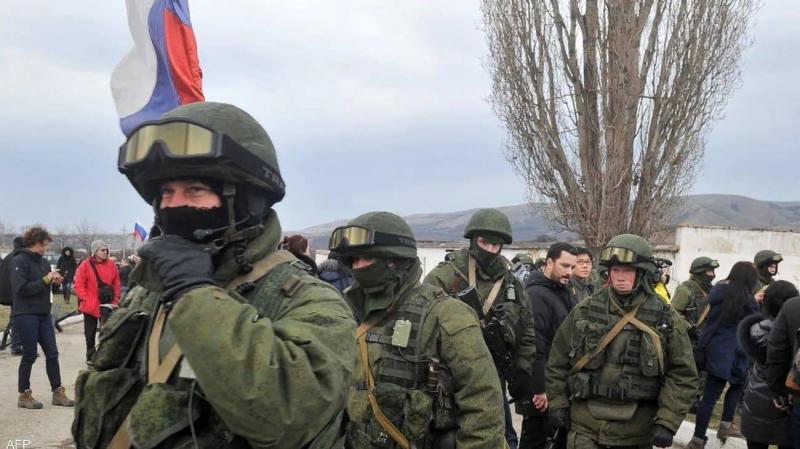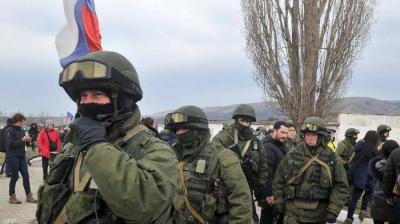As international warnings about the imminent Russian military invasion of neighboring Ukraine intensify, it appears that Moscow has launched its "special war" and has come to an end. Many Ukrainian officials have warned that Russia, which has deployed over 100,000 soldiers around three sides of their country, is intensifying its campaign to destabilize Ukraine through cyberattacks and economic disruptions.
### False Threats
The new tactic being adopted involves spreading hundreds of false bomb threats in various areas. Ukrainian officials believe that the purpose of this intensified campaign by Moscow is to weaken their country and instill panic, potentially provoking discontent and protests similar to those that had previously erupted in the east of the country in 2014 to justify its interventions there. They further asserted that the likelihood of intensifying the campaign to destabilize Ukraine is greater than that of launching a large-scale invasion. U.S. and British officials had previously announced (in January 2022) that they had observed "coup conspiracies aimed at installing a pro-Russian government."
### Pressure Without War
These tactics or plans demonstrate how Russian President Vladimir Putin can continue to pressure Kyiv without escalating into a military war that could lead to tragedies and a wave of sanctions that he would prefer to avoid, according to a report from the Wall Street Journal. Kyiv is acutely aware of this and is trying to avert it. Oleksiy Danilov, the chief national security advisor to Ukrainian President Volodymyr Zelensky, recently explained in an interview that Moscow's primary objective is to undermine his country from within.
### Old Tactics
Since Russia annexed parts of Ukraine in 2014, it has employed a variety of tactics to try to exhaust its resources and its will to fight. The Kremlin could currently revert to such plans, either by increasing the arming and support of pro-Russian separatists in eastern Ukraine or even escalating fighting there to create a pretext for sending its army deeper into Ukraine, as it did in Georgia in 2008. However, such plans yielded some negative outcomes at the time; support in Ukraine for joining NATO and the European Union surged to over half the population. Furthermore, the Ukrainian economy did not collapse, but rather shifted trade from Russia to the EU and other places. Additionally, the Ukrainian government has strengthened its cyber defenses and closed down television stations it described as inciting propaganda channels.
Nevertheless, vulnerabilities remain that could be exploited. Ukraine is one of the poorest countries in Europe and has a weak economy. The Russian military build-up has frozen many investors from pursuing projects, leading to millions of dollars being withdrawn from the country. Despite all this, the West stands behind Kyiv, supporting it with weapons and warning of sanctions against Moscow should it invade its neighbor. Meanwhile, the Kremlin's leader continues to observe the situation, following what his aide described yesterday as Western "hysteria."




